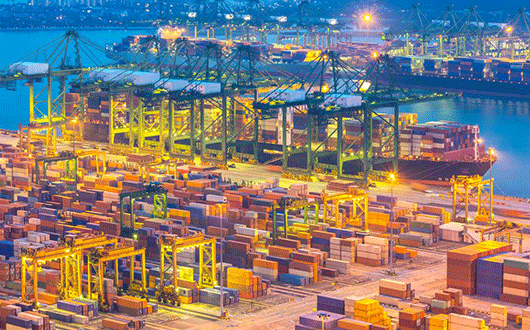The UK’s departure from the EU is sending shockwaves around the planet, some of which have been felt here at home too; the PSX has lost some 1400 points in trading since the vote, while the Rupee-Sterling parity is now at Rs139 and falling – the lowest since 2012. At the heart of this is the future of Pakistan’s trade relations with the newly-divorced nation.
The UK is Pakistan’s third-largest trading partner after the US and China, accounting for over $1.6 billion in exports annually (as of FY15). As part of the EU, it was the destination for around a fourth of all items sent to the (soon-to-be former) 28-member bloc. Our main exports to the UK are in the form of textiles – cotton fabrics, knitwear and readymade garments, bed wear – and rice, to name a few.
In January 2014, Pakistan was awarded GSP Plus status, allowing around 20 percent of the country’s exports to the EU at zero tariffs and another 70 percent at preferential rates. While it may be argued that Pakistan has failed to exploit the GSP Plus agreement to anywhere near its fullest potential, there has been a quantum leap in exports to the EU and UK since FY13. That increased trade – attributable to the GSP Plus – is now under threat.
Britain will now have to renegotiate all its trade agreements. Business Recorder reported last week that the government of Pakistan will start inter-ministerial consultations regarding an FTA with Britain as “GSP Plus benefits may be threatened in the event that the country decides not to accord the same preferences.” The biggest customer of our GSP Plus exports was the UK and now they might be a little hot on the negotiating table, not as eager to allow duty-free inflows from certain countries in light of the prevailing circumstances. The anti-globalist frenzy that prompted the exit in the first place might find its champion in the next government, which might be protectionist. That’s one possible outcome.
The EU, as well, is largely protectionist, while the UK has always been the one advocating open markets thus far. The Financial Times writes, “The UK government has consistently been a voice for liberal economics within Europe; without Britain at the table, the EU is much more likely to move towards protectionism.” So, the rest of the world’s trade relations with the EU might also be under fire. Moreover, Pakistan has enjoyed the support of the UK at the time of GSP Plus reviews. Now, with the UK gone, one can only wonder whether or not this changes things and if Pakistan is treated with the same leniency.
But for the most part, a lot of things hinge on what kind of deal the UK is able to broker with the EU. London would like to maintain its access to the EU single market, and the negotiations will determine how deep of trouble the UK is in; almost half the UK’s exports go to the EU, while over half of imports come from EU as well. Naturally, if the EU decides to disallow the UK’s non-quota, non-tariff exports, then the country would be in deep trouble. Britain would then have to find some countries willing to grant its goods and services preferential access to plug the hole left by the loss of its EU single market. This could work well in Pakistan’s favor, giving us better leverage at the negotiating table. That’s another possible outcome.
Post-Brexit, Britain might be looking at a mild recession in 2017, as per Goldman Sachs, estimating a 2.75 percent fall in GDP within the next 18 months. The economy is likely to be in the doldrums in the near term, and that does not bode well for a trade. Meanwhile, Goldman Sachs expects the EU’s GDP growth to average 1.25 percent as opposed to 1.5 percent over the next two years. So, this entire market will be a little problematic; slower growth means a lower appetite, meaning less export for Pakistan.
Finally, another negative impact is that with the Sterling and Euro down, the UK and EU’s imports would be more expensive and that alone is going to have a significant impact on Pakistan’s trade, at least in the short run. The reduced appetite in the region will weigh on our textile businesses, which will be seeing lower margins as is due to the fall in the currencies. Regionally, the Indian Rupee and Vietnamese Dong have also appreciated against the GBP by around the same – 11 percent. So, at least there’s no threat of exchange rates causing a relative disadvantage. However, we might see imports from the regions spike, as they are now relatively cheaper.
First published: June 29, 2016.





